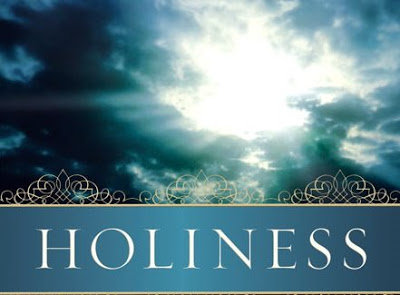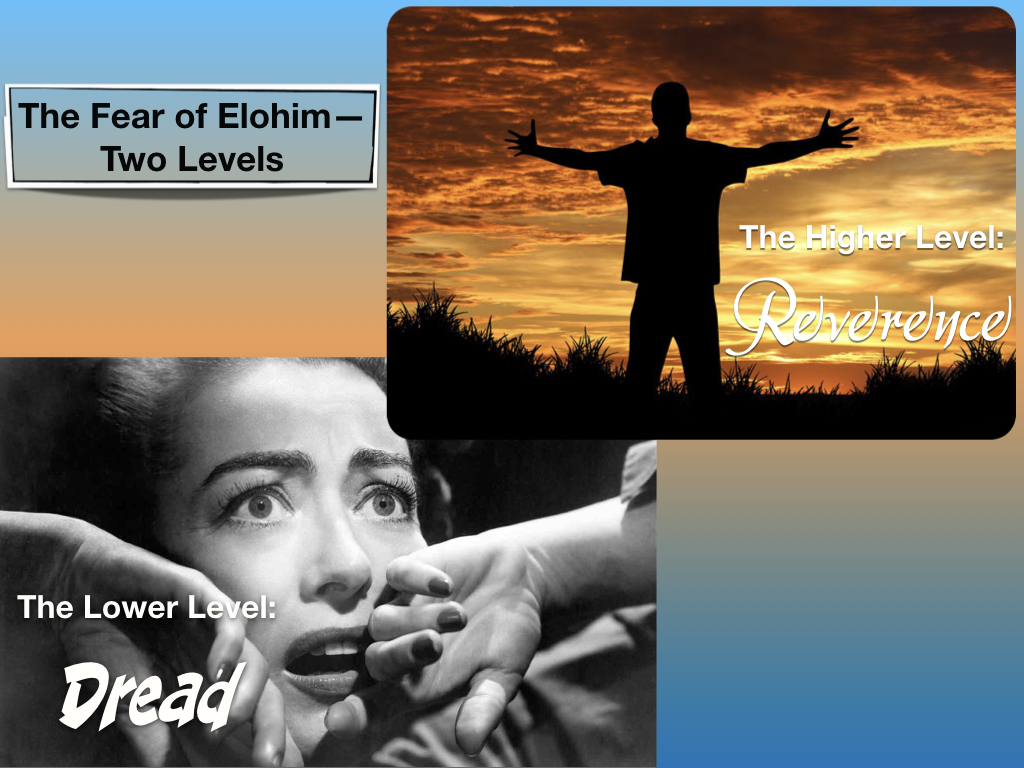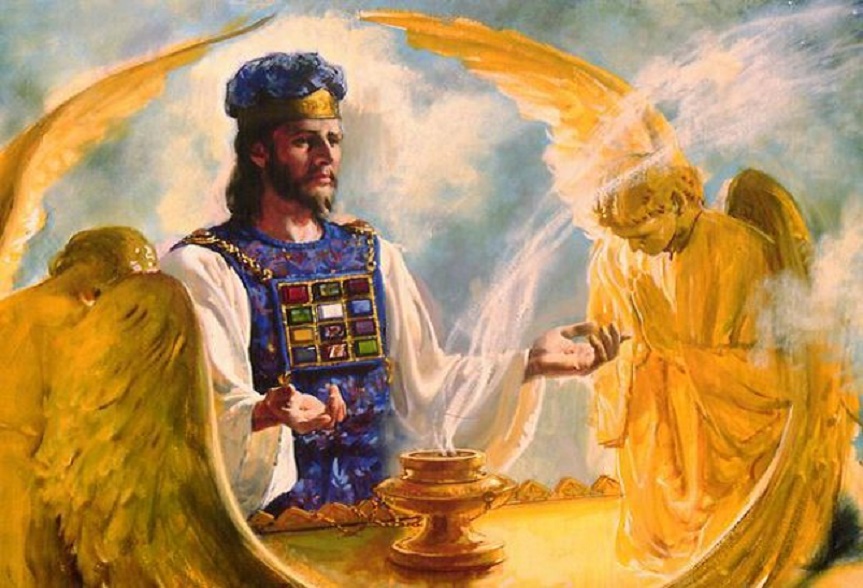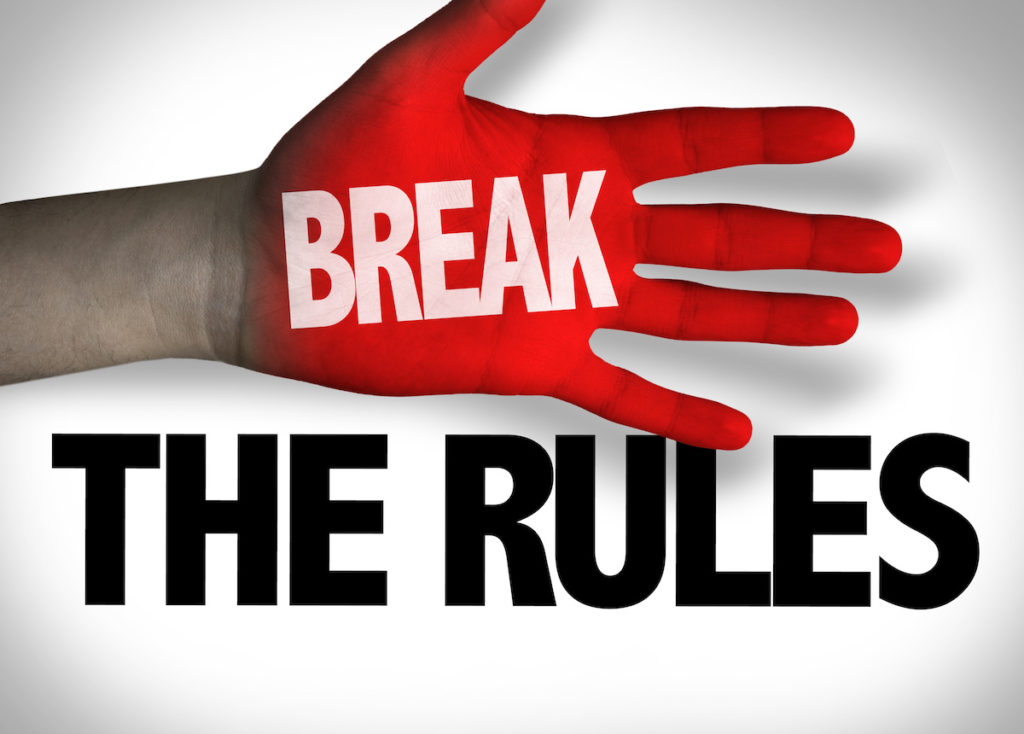How does a person become holy? Does holy water make you holy? Does a robed priest sporting a goofy headdress and wearing a giant charm around his pencil neck while waving his gaunt and delicate hand over you make you holy? Does stepping into a gilded and ornately decorated church and performing some religious mumbo-jumbo exercise make you holy? NO! The Bible declares how a person becomes holy, and it’s NOT what most people think!
For starters, most well-meaning but deceived folks don’t even know what the word holy means. It comes from the Hebrew word kadash, a verb meaning “to be pure, undefiled, unpolluted, set-apart or sanctified.” The Hebrew word kodesh is the biblical adjective to describe Elohim who is totally pure and sinless and without any pollution or defilement. Kodesh also describes those things which YHVH has made holy or declared to be holy such as certain times (such as his Sabbath and feasts), certain places (such as the Tabernacle of Moses), and certain people (such as his priests and saints). No matter how elaborate and convincing the efforts humans cannot make or declare anything holy regardless of the ceremonialism and religious activities. These efforts are merely futile, vain and, quite frankly, laughable! Many unbelieving pagans see this religious charade for what it is and are not convinced. Some even mock and scorn such efforts. Religiosity is NOT the way to bring people to Elohim—to bring unholy man into the presence of a holy Elohim.
So what is true biblical holiness, and how is it different than the counterfeit that often passes for holiness in religious circles? Let’s discuss this briefly below.
1 Peter 1:16, Be holy, for I am holy. How do we as redeemed believers initially become kadosh or set-apart? This occurs only through the blood of Yeshua, the Lamb of Elohim at the time of our salvation.
And from Yeshua Messiah, who is the faithful witness, and the first begotten of the dead, and the prince of the kings of the earth. Unto him that loved us, and washed us from our sins in his own blood. (Rev 1:5)
“Come now, and let us reason together,” says YHVH. “Though your sins be as scarlet, they shall be as white as snow; though they be red like crimson, they shall be as wool.” (Isa 1:18)
How does one stay set-apart or sanctified andstay in fellowship with a kadosh Elohim? This is accomplished by staying under the blood of Yeshua the Lamb and by confessing and forsaking sin (i.e. violation of the Torah-law of Elohim—1 John 3:4) on a regular basis:
If we say that we have fellowship with him, and walk in darkness [sin or Torahlessness], we lie, and do not the truth [i.e. Torah/YHVH’s instructions in righteousness], but if we walk in the light, as he is in the light, we have fellowship one with another, and the blood of Messiah Yeshua his Son cleanse us from all sin. If we say that we have no sin, we deceive ourselves, and the truth is not in us. If we confess our sins, he is faithful and just to forgive us our sins, and to cleanse us from all unrighteousness. (1 John 1:6–9)
We also stay set-apart or holy by walking in accordance with YHVH’s Torah commandments. The Scriptures are clear on this: holiness or being set-apart from world cannot be separated from obedience to YHVH’s Torah instructions in righteousness.
Everywhere in Scripture (Exod 22:31; Lev 11:45; 19:2; 20:7, 26; 21:28; 1 Pet 1:16) where YHVH’s saints are commanded to be holy, the command is tied to obedience to his laws be they his dietary laws, the Sabbath, honoring one’s parents, treating one’s neighbor ethically, being a righteous minister, or not succumbing to the pagan practices of the world including sexual immorality, witchcraft, sorcery and witchcraft. To be sure, when we practice holiness by living according to the word of Elohim, it will set us apart and make us different from the world. We cannot be like the world and be holy, set-apart and pleasing to Elohim.
Ye adulterers and adulteresses, know ye not that the friendship of the world is enmity with Elohim? whosoever therefore will be a friend of the world is the enemy of Elohim. (Jas 4:4)
Don’t forget the importance of being holy or set-apart from this world, for the Scriptures tell us that without holiness no one will see Elohim (Heb 12:14). This is pretty cut and dried!
Why is holiness so important? Simply this. Contrary to Scripture, the mainstream Christian church teaches one of two things: either holiness is equivalent to religiosity, or that love is YHVH Elohim’s chief attribute. The first notion is incorrect because the Bible teaches that holiness is about obedience to the word or will of Elohim and is not merely about religious activities. The second notion is incorrect because although the Scriptures teach that Elohim is, indeed, love, this is not his chief attribute. Holiness is. This is why the heavenly beings surrounding the Elohim’s heavenly throne are continuously declaring that he is holy.
And one cried unto another, and said, Holy, holy, holy, is the YHVH of hosts: the whole earth is full of his glory. (Isa 6:3)
And the four beasts had each of them six wings about him; and they were full of eyes within: and they rest not day and night, saying, Holy, holy, holy, YHVH Elohim Almighty, which was, and is, and is to come. (Rev 4:8)
Elohim created humans with the potential to be holy as he is holy, so that he, a holy Elohim, can spend eternity with holy glorified humans. No unholy or sinful beings can remain in his presence.









